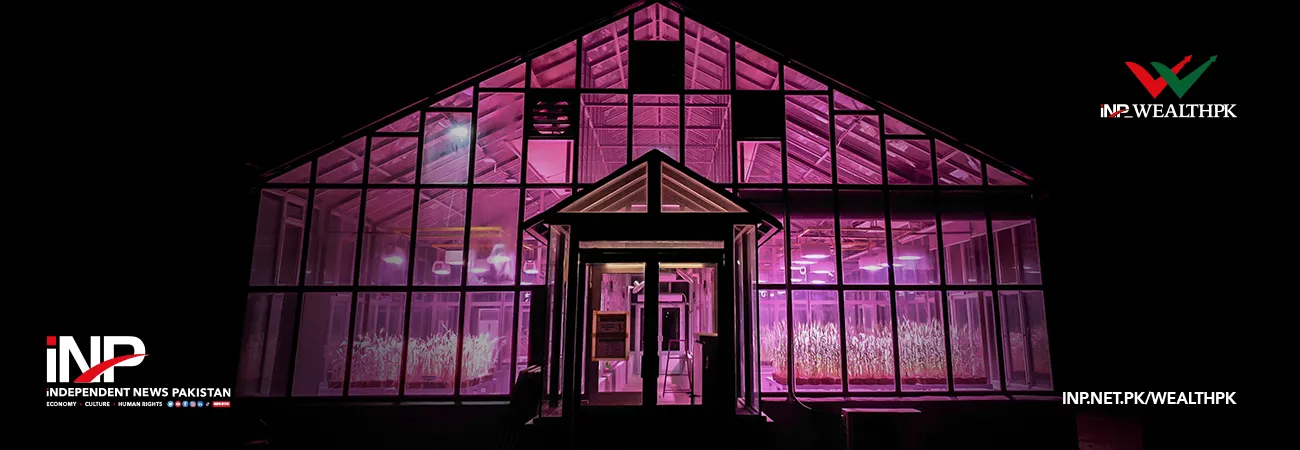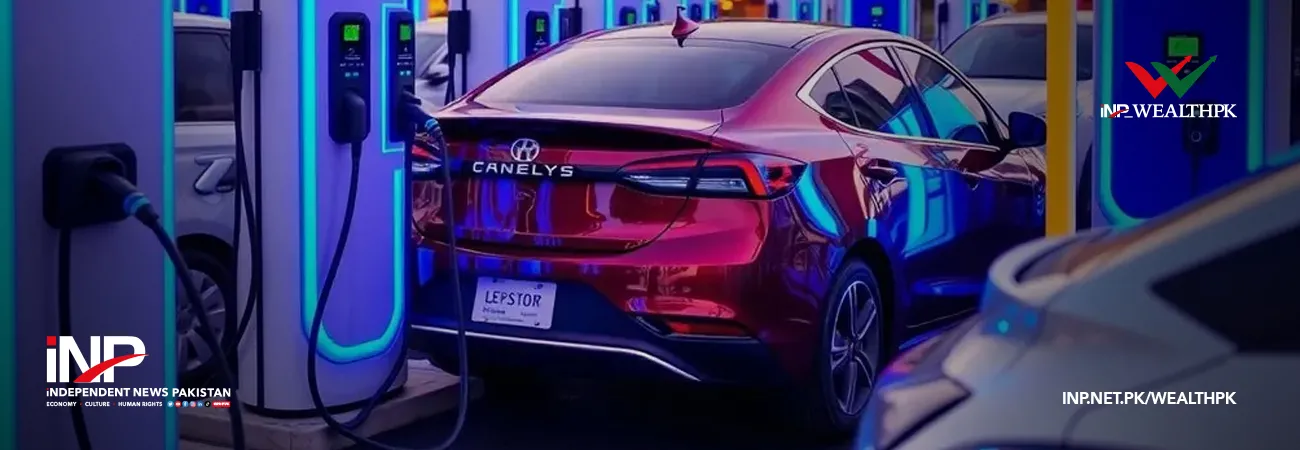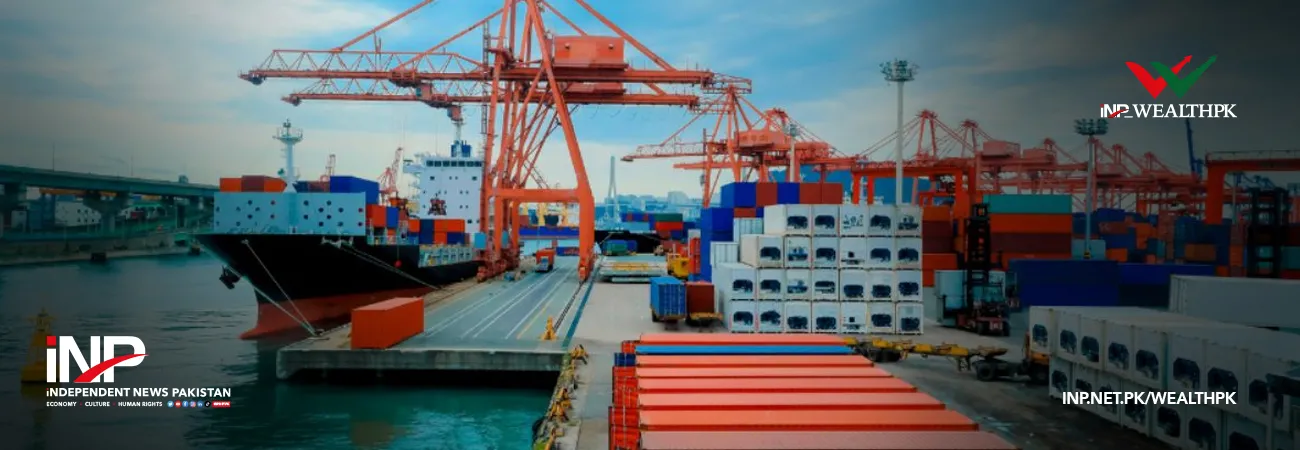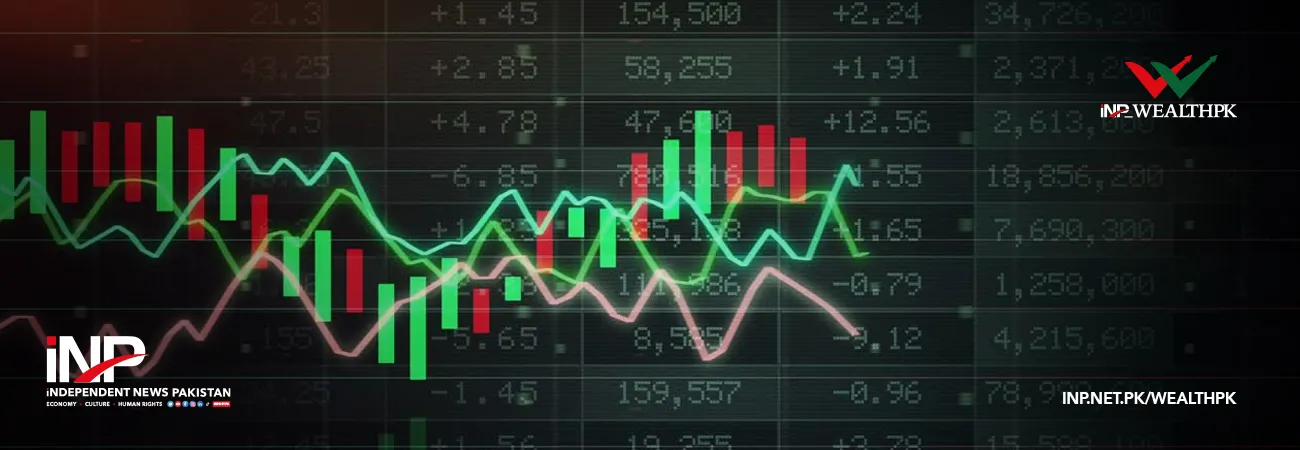INP-WealthPk
By Hamid Mahmood
ISLAMABAD, Feb. 24 (INP-WealthPK): Pakistan and the Gulf Cooperation Council (GCC) member countries have had a long-standing friendship, which began with religious and strategic connections and has now encompassed wide-ranging economic cooperation.
According to WealthPK research, GCC has a trade volume of $15.48 billion with Pakistan as of October 2021. The graph below shows the trade volume of GCC countries with Pakistan. Given Pakistan's current economic condition, it is more crucial than ever for the government to focus on enhancing its economic connections with GCC countries and identifying pathways and secure niches for a far more stable future trajectory.
[caption id="attachment_64101" align="aligncenter" width="602"] Source: UN-Comtrade Database/WealthPK Research[/caption]
In order to further strengthen economic ties, Pakistan and GCC have agreed for a 'Joint Action Plan for Strategic Dialogue (2022-26)' to offer an institutional framework to deepen cooperation in several sectors. On January 5, 2022, the GCC Secretary-General Dr Nayef Falah M Al-Hajraf and Pakistan Foreign Minister Shah Mahmood Qureshi met at a delegation level to finalize the proposal. The action plan, as both parties agreed, would offer a powerful push for fully achieving the enormous potential for expanded collaboration. The two sides discussed the status of attempts to reach an agreement on a free-trade agreement (FTA) between Pakistan and the GCC.
A wide range of industries has been recognized as potential strategic discussion segments to be held in an institutionalized framework. Politics, security, trade and investment, agriculture and food security, transportation, energy, environment, health, education, and culture are among the sectors identified for cooperation. This debate will take place over a five-year period. As a result, the future collaboration will be broad and comprehensive. The China-Pakistan Economic Corridor (CPEC), which has opened up new horizons for energy transit and trade movement between China and GCC member nations through Pakistan, appears to have given this cooperation a fresh momentum.
Pakistan's top priorities are security, stability, and the secure flow of energy resources. Every day, hundreds of oil and gas-laden ships travel through the Hormuz Strait, passing near Pakistani territorial waters. The GCC nations provide the majority of Pakistan's energy, whether it's oil or gas. Under bilateral agreements, it has also provided technical training to the warships of GCC nations.
In future, the Pakistan-GCC relations will be further strengthened with the two partners agreeing on the action plan for the strategic conversation. Pakistani skilled workers will have enormous economic prospects as a result of GCC member nations' rejuvenation programs, such as Saudi Vision 2030, Kuwait Vision 2035, and Oman Vision 2040, potentially increasing the flow of remittances into the country. Pakistan will also be able to interact more with nations like Kuwait, Oman, and Bahrain as a result of the strategic conversation. The engagement of GCC member nations in CPEC, who have previously shown their desire to participate in energy projects as the member states and to diversify their economies, would also deepen economic connections between the two.
The completion of the CPEC energy projects comes at a time when Pakistan is ready to profit from third-party investments to expand the corridor. Pakistan and China have agreed to incorporate third-party participation in the CPEC projects via three-dimensional connectivity, i.e. business-to-government (B2G), business-to-business (B2B), and people-to-people (P2P). They will seek investment in industrial and energy-related projects from GCC countries. Inviting GCC countries to participate in CPEC will further improve their ties with Pakistan. They will also gain indirectly from the deepening of their economic links with China and the expansion of their bilateral trade volume.
China gets much of its crude oil and natural gas from the Middle East. Currently, these materials are mostly carried by sea to eastern China, where the majority of the country's industrial activity is situated. Commodities including oil and natural gas will be transported cheaply to Gwadar Port and then to western China through CPEC. The CPEC will also enable GCC nations to boost their commerce with China, and several have expressed strong interest in investing in CPEC-related projects. It would be a win-win situation for China, the GCC, and Pakistan.
Source: UN-Comtrade Database/WealthPK Research[/caption]
In order to further strengthen economic ties, Pakistan and GCC have agreed for a 'Joint Action Plan for Strategic Dialogue (2022-26)' to offer an institutional framework to deepen cooperation in several sectors. On January 5, 2022, the GCC Secretary-General Dr Nayef Falah M Al-Hajraf and Pakistan Foreign Minister Shah Mahmood Qureshi met at a delegation level to finalize the proposal. The action plan, as both parties agreed, would offer a powerful push for fully achieving the enormous potential for expanded collaboration. The two sides discussed the status of attempts to reach an agreement on a free-trade agreement (FTA) between Pakistan and the GCC.
A wide range of industries has been recognized as potential strategic discussion segments to be held in an institutionalized framework. Politics, security, trade and investment, agriculture and food security, transportation, energy, environment, health, education, and culture are among the sectors identified for cooperation. This debate will take place over a five-year period. As a result, the future collaboration will be broad and comprehensive. The China-Pakistan Economic Corridor (CPEC), which has opened up new horizons for energy transit and trade movement between China and GCC member nations through Pakistan, appears to have given this cooperation a fresh momentum.
Pakistan's top priorities are security, stability, and the secure flow of energy resources. Every day, hundreds of oil and gas-laden ships travel through the Hormuz Strait, passing near Pakistani territorial waters. The GCC nations provide the majority of Pakistan's energy, whether it's oil or gas. Under bilateral agreements, it has also provided technical training to the warships of GCC nations.
In future, the Pakistan-GCC relations will be further strengthened with the two partners agreeing on the action plan for the strategic conversation. Pakistani skilled workers will have enormous economic prospects as a result of GCC member nations' rejuvenation programs, such as Saudi Vision 2030, Kuwait Vision 2035, and Oman Vision 2040, potentially increasing the flow of remittances into the country. Pakistan will also be able to interact more with nations like Kuwait, Oman, and Bahrain as a result of the strategic conversation. The engagement of GCC member nations in CPEC, who have previously shown their desire to participate in energy projects as the member states and to diversify their economies, would also deepen economic connections between the two.
The completion of the CPEC energy projects comes at a time when Pakistan is ready to profit from third-party investments to expand the corridor. Pakistan and China have agreed to incorporate third-party participation in the CPEC projects via three-dimensional connectivity, i.e. business-to-government (B2G), business-to-business (B2B), and people-to-people (P2P). They will seek investment in industrial and energy-related projects from GCC countries. Inviting GCC countries to participate in CPEC will further improve their ties with Pakistan. They will also gain indirectly from the deepening of their economic links with China and the expansion of their bilateral trade volume.
China gets much of its crude oil and natural gas from the Middle East. Currently, these materials are mostly carried by sea to eastern China, where the majority of the country's industrial activity is situated. Commodities including oil and natural gas will be transported cheaply to Gwadar Port and then to western China through CPEC. The CPEC will also enable GCC nations to boost their commerce with China, and several have expressed strong interest in investing in CPEC-related projects. It would be a win-win situation for China, the GCC, and Pakistan.













